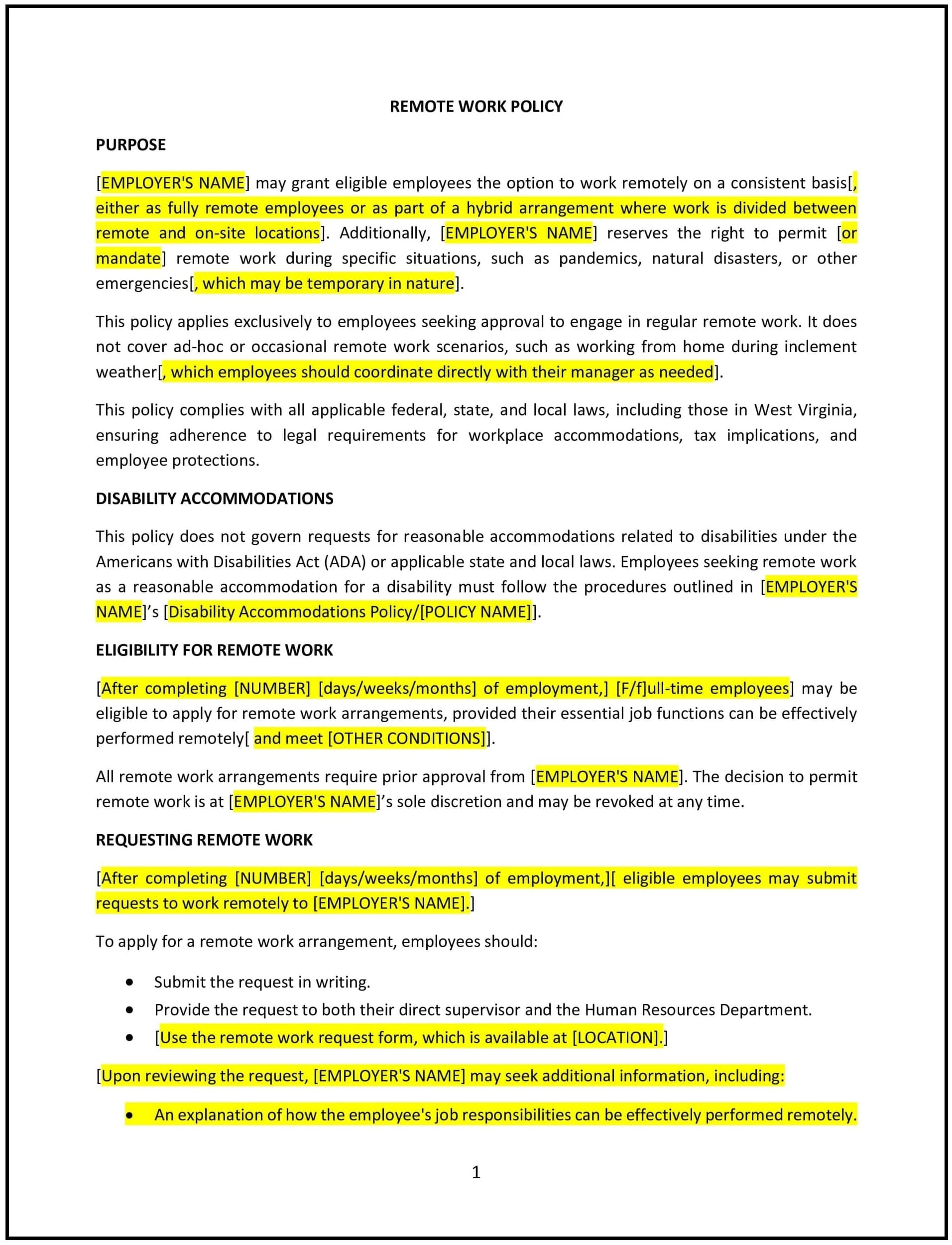Got contracts to review? While you're here for policies, let Cobrief make contract review effortless—start your free review now.

Customize this template for free
Remote work policy (West Virginia)
In West Virginia, a remote work policy provides clear guidelines for employees working from locations outside the traditional office setting. This policy ensures that remote work arrangements are managed effectively, support employee productivity, and align with the organization’s operational needs and compliance requirements.
The policy outlines eligibility criteria, expectations for performance and communication, and procedures for requesting remote work arrangements.
How to use this remote work policy (West Virginia)
- Define eligibility: Specify which roles or employees qualify for remote work based on job responsibilities, performance, and business needs.
- Set expectations: Establish clear guidelines for work hours, availability, communication, and productivity while working remotely.
- Address equipment and resources: Detail the tools, technology, and support provided by the organization to facilitate remote work.
- Outline security protocols: Include measures to protect company data, such as using secure networks, maintaining confidentiality, and following IT policies.
- Support compliance: Ensure the policy aligns with West Virginia labor laws, including wage and hour regulations, to avoid legal risks.
Benefits of using a remote work policy (West Virginia)
- Increases flexibility: Supports employees in balancing personal responsibilities with work commitments.
- Boosts productivity: Enables employees to work in environments that enhance their focus and efficiency.
- Reduces overhead: Lowers costs related to office space, utilities, and commuting.
- Enhances recruitment: Attracts talent by offering remote work options, especially for roles that allow location independence.
- Supports compliance: Aligns with West Virginia labor laws to ensure fair and lawful implementation of remote work practices.
Tips for using a remote work policy (West Virginia)
- Communicate the policy: Share the policy with employees during onboarding and ensure it is accessible for reference.
- Train managers: Provide guidance on managing remote teams effectively, including communication strategies and performance monitoring.
- Monitor performance: Use regular check-ins and goal-setting to ensure remote employees meet expectations and remain engaged.
- Encourage feedback: Solicit input from employees on their remote work experience to improve the policy and address any concerns.
- Review periodically: Update the policy to reflect changes in West Virginia laws, workplace practices, or technology.